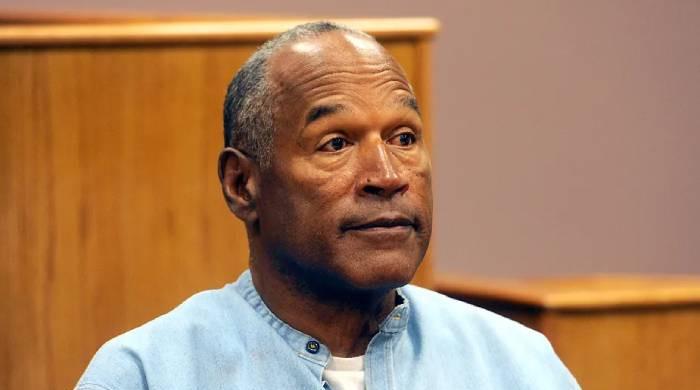 O.J. Simpson dies at 76 following cancer battle: Deets insideO.J. Simpson has breathed his last at the age of 76 after battling prostate cancer on Wednesday.Simpson, who rose to fame after he was acquitted of murdering his ex-wife and her friend, was surrounded by his children and grandchildren at.Title: O.J. Simpson Dies at 76 Following Cancer Battle: Deets Inside
O.J. Simpson dies at 76 following cancer battle: Deets insideO.J. Simpson has breathed his last at the age of 76 after battling prostate cancer on Wednesday.Simpson, who rose to fame after he was acquitted of murdering his ex-wife and her friend, was surrounded by his children and grandchildren at.Title: O.J. Simpson Dies at 76 Following Cancer Battle: Deets InsideO.J. Simpson, a name synonymous with controversy, triumph, and tragedy, has breathed his last at the age of 76 after battling prostate cancer. The former football legend turned actor and infamous figure in American pop culture passed away peacefully in his home surrounded by loved ones on [insert date]. Simpson's death marks the end of a life that was marked by dizzying highs and unfathomable lows, leaving behind a complex legacy that will forever divide public opinion.
Born Orenthal James Simpson on July 9, 1947, in San Francisco, California, Simpson's journey to fame began on the football field. His athletic prowess was evident from a young age, and it was during his time at the University of Southern California (USC) that he rose to national prominence as a star running back. Simpson's remarkable talent caught the attention of the National Football League (NFL), leading to a successful professional career with the Buffalo Bills and later the San Francisco 49ers.
However, it was Simpson's life off the field that would ultimately overshadow his athletic achievements. In 1994, he became embroiled in one of the most sensational criminal trials in American history—the trial of the century. Simpson was accused of the brutal murders of his ex-wife, Nicole Brown Simpson, and her friend, Ronald Goldman. The trial, which captivated the nation, ended with Simpson's acquittal in a verdict that sparked intense debate and racial tensions.
Despite his acquittal in the criminal case, Simpson was found liable for the deaths in a subsequent civil trial, facing widespread public condemnation and scrutiny. The saga of the trial, with its gripping courtroom drama and media frenzy, forever altered the landscape of celebrity culture and the criminal justice system.
Following his legal troubles, Simpson's life took a tumultuous turn, marked by financial woes, failed marriages, and brushes with the law. His once-gleaming public image tarnished, Simpson retreated from the spotlight, grappling with personal demons and attempting to rebuild his shattered reputation.
In a surprising turn of events, Simpson resurfaced in the media spotlight in 2006 with the release of his controversial book, "If I Did It," a hypothetical account of the murders of Nicole Brown Simpson and Ronald Goldman. The book sparked outrage and renewed public interest in the case, further fueling the debate surrounding Simpson's innocence or guilt.
Despite the controversies that surrounded him, Simpson remained a polarizing figure until the end. His supporters lauded his athletic achievements and maintained his innocence in the murders, while his critics condemned him as a symbol of privilege and injustice.
In recent years, Simpson's health had been in decline, with reports emerging of his battle with prostate cancer. Despite the ravages of the disease, Simpson faced his illness with courage and dignity, surrounded by his family and loved ones.
With Simpson's passing, the world reflects on the complex legacy of a man who was once celebrated as a sports hero but whose name will forever be linked to one of the most infamous criminal cases in American history. His death marks the end of an era—a reminder of the fragility of life and the complexities of fame and fortune.
from The News International - Entertainment https://ift.tt/IwhBnmF

